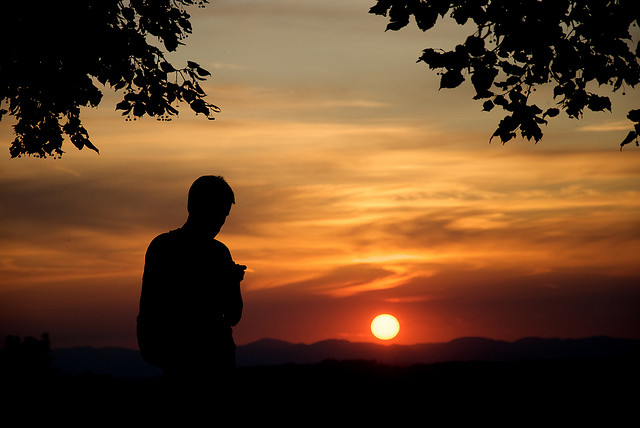
“The secret of joy is the mastery of pain.” ~Anais Nin
There have been times when I’ve experienced pain when all I wanted was for its cessation.
I’m not sure whether I’m “unique” in my experience of pain or in how many times in my life I’ve had to deal with physical pain. While I don’t consider myself “cursed” by it, I’ve endured enough of it to become somewhat of an “expert” on its presence and its effects.
Besides the normal cuts and scrapes that we all experience, I’ve had the (un?)fortunate luck of having had—at separate times in my life—back surgery, shoulder reconstruction, ankle reconstruction, a crushed finger, and a neck injury that has resulted in lifelong and chronic pain.
Good fortune? Perhaps. Read on.
When I’ve been in the acute phase of these experiences, there has been one priority for me, getting rid of the pain. And, who wouldn’t feel the same? After all, we’re hardwired to resist pain. It’s in our reptilian brain and in our neurological makeup to avoid it.
Do we ever elect to have the excruciating experience for the exquisite outcome? Maybe.
My most recent experience with acute pain came after an ankle reconstruction that I electively chose to have due to ongoing problems. It was during the post-operative period that I experienced some of the worst pain that I can remember.
Immediately after the surgery, I was given some strong narcotics to deal with the discomfort. Little had I expected that “discomfort” would be an understatement, what I experienced was excruciating pain.
It’s interesting to note that the root of the word excruciate is < L excruciatus, pp. of excruciare < ex-, intens. + cruciare, to torture, crucify < crux, cross. So it may literally mean “a pain like the pain of crucifixion.” Yikes!
I’d never thought of my pain as being a crucifixion, but following this surgery I felt like pain was more a punishment than a gift. It wasn’t until I was talking with a friend and I described the pain as being “exquisite” that I began to realize that maybe there was a gift within the experience and that I needed to examine what I had endured.
It’s equally interesting to note that the root of the word exquisite is L exquisitus, pp. of exquirere, to search out < ex-, out + quaerere, to ask [for]. Had I “searched out” this pain, had I “asked for” it? Hmmm.
A few weeks after the ankle pain subsided to a tolerable level I found myself “missing the experience” and began a review of what I had gained from the whole affair. I mused on the fact that when I was dealing with the phenomenon of pain, my attention was clear, focused and precise; I’d really been engaged.
As I began to reflect on my experiences of intense pain I realized that there had indeed been a gift within the pain and that I almost “missed” the pain or, at least, the experience of such heightened cognizance of the moment!
It was like I’d turned the experience into a form of meditation and hadn’t even realized it until after it was gone. There was a quality of “the present” that seemed less pronounced in my day-to-day life and that I only experienced, intermittently, while practicing meditation, and I kind of missed it.
When I was in pain, both after my shoulder surgery as well as after my ankle surgery, there was an “exquisite” quality of life that I’d only previously experienced while rock-climbing, pushing myself to my limit bicycling or, as I do now on a regular basis, meditating.
When I was experiencing intense pain, just on the other side of the suffering was an intense connection with life and with being embodied, having a body and feeling sensations.
Feeling good, feeling bad, it almost made no difference. It’s almost as if the pure experience of it was all that mattered.
As I’ve reflected on my realization of the exquisiteness of pain, I’ve began to get a sense of the “hook” that keeps people in the “addictive” cycle of suffering and of what keeps some people in the unconscious cycle of pain. The “immediacy” of pain is quite…engaging!
I’ve come to wonder whether the only difference between those who are able to gain mastery of their pain and find joy and those cannot, is the recognition that there are other ways to engage the pain to find an extraordinary lightness of being.
I’ve reflected on my experience and have come to realize that there was a certain “allure” to being that close to the edge, to being that close to aliveness, inspired by intense physical pain. Could this be why “thrill seekers” are so adamant about their pursuit of the extreme?
As a “good meditator,” and being a nurse who wonders how I can help to alleviate pain and suffering in the world, I’ve had to ask myself if there are a few nuggets of wisdom that I can pass on from my experience and from my reflections.
Recently, in a post on this site titled, “Taking Small Steps to Do the Thing That Scares You,” author (and hostess of Tiny Buddha) Lori Deschene wrote that you need to:
Absorb yourself completely in each phase of the process, giving them your full attention, as if nothing else matters but what you’re doing right now—as if showing up for each part of the journey is in itself the goal.
What if when we suffer pain, either physically or mentally, we apply our full attention to the totality of the experience, absorbing ourselves completely into each phase of the experience, instead of wishing that it would end?
I’ve worked hard for my relationship with pain, and it’s paid off!
I remember shortly after my father died I experienced a lot of sadness over the loss of his presence in my life and the lost opportunities to say things that I wish I’d said. That’s a normal kind of grief and I had no problem with it.
During that time, I was the Case Manager at a pain clinic, overseeing the care of 3500 pain-patients. One of my colleagues at work, a well-meaning physician, suggested that maybe I should “Go on antidepressants” so that I could “get over it.”
I was totally pissed off at her and told her that it was “my right to experience the loss,” and that the painful feelings were part of being attached to my father and to having lost his presence in my life. I think that I also said something to the effect of, “I worked hard for this relationship and I’m allowed to feel the pain!”
Was I onto something? Was my “…right to experience the loss…” part of what Lori means when she writes, “…nothing else matters but what you’re doing right now—as if showing up for each part of the journey is in itself the goal”? I believe so.
We’ve only got one life to live, and if we spend the painful and challenging moments wishing that we were somewhere else, we lose part of the journey, don’t we?
How can we enjoy the bliss of a rainbow if we don’t experience the downpour? And how can we experience the joy of life without mastering the pain of death?
In what ways might you be avoiding the pains of daily life? Are there ways that you can begin to engage the entire journey that you’re on without having to say “No” to the parts that feel difficult? And are there ways that you celebrate the whole messy affair that is life?
Photo by lejoe
About Jerome Stone
Jerome Stone is an RN with over 30 years experience in healthcare including pain management, hospice, ICU & research in complimentary medicine. He’s the author of the book, Minding the Bedside: Nursing from the Heart of the Awakened Mind and a blogger on Minding the Bedside & What Meditation Really Is.


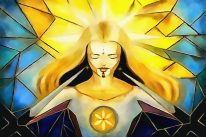
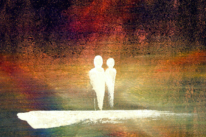
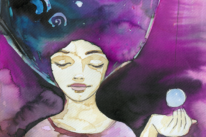


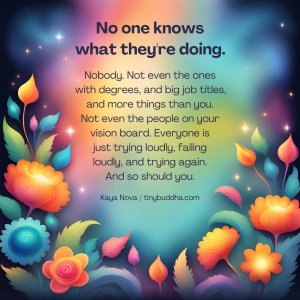





 Though I run this site, it is not mine. It's ours. It's not about me. It's about us. Your stories and your wisdom are just as meaningful as mine.
Though I run this site, it is not mine. It's ours. It's not about me. It's about us. Your stories and your wisdom are just as meaningful as mine. 